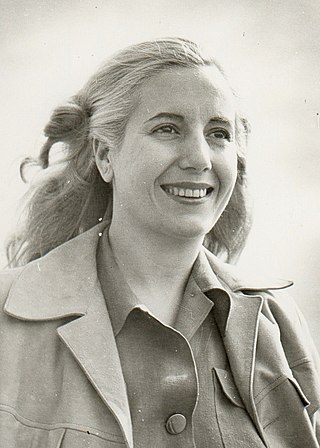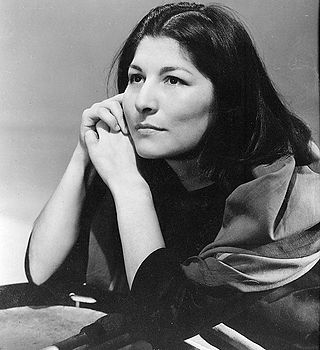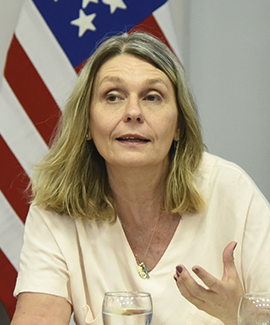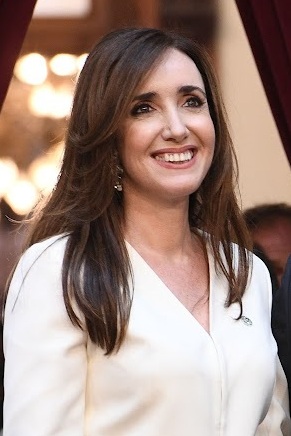Related Research Articles

The Falklands War was a ten-week undeclared war between Argentina and the United Kingdom in 1982 over two British dependent territories in the South Atlantic: the Falkland Islands and its territorial dependency, South Georgia and the South Sandwich Islands. The conflict began on 2 April 1982, when Argentina invaded and occupied the Falkland Islands, followed by the invasion of South Georgia the next day. On 5 April, the British government dispatched a naval task force to engage the Argentine Navy and Air Force before making an amphibious assault on the islands. The conflict lasted 74 days and ended with an Argentine surrender on 14 June, returning the islands to British control. In total, 649 Argentine military personnel, 255 British military personnel, and three Falkland Islanders were killed during the hostilities.

María Eva Duarte de Perón, better known as just Eva Perón or by the nickname Evita, was an Argentine politician, activist, actress, and philanthropist who served as First Lady of Argentina from June 1946 until her death in July 1952, as the wife of Argentine President Juan Domingo Perón (1895–1974). She was born in poverty in the rural village of Los Toldos, in the Pampas, as the youngest of five children. In 1934, at the age of 15, she moved to the nation's capital of Buenos Aires to pursue a career as a stage, radio, and film actress.

Isabel Martínez de Perón also known as Isabelita, is an Argentine politician who served as President of Argentina from 1974 to 1976. She was one of the first female republican heads of state in the world, and the first woman to serve as president of a country.

Haydée Mercedes Sosa, sometimes known as La Negra, was an Argentine singer who was popular throughout Latin America and many countries outside the region. With her roots in Argentine folk music, Sosa became one of the preeminent exponents of El nuevo cancionero. She gave voice to songs written by many Latin American songwriters. Her music made people hail her as the "voice of the voiceless ones". She was often called "the conscience of Latin America.

The Official Story is a 1985 Argentine historical drama film directed by Luis Puenzo and written by Puenzo and Aída Bortnik. It stars Norma Aleandro, Héctor Alterio, Chunchuna Villafañe and Hugo Arana. In the United Kingdom, it was released as The Official Version.

"Don't Cry for Me Argentina" is a song recorded by Julie Covington for the 1976 concept album Evita, later included in the 1978 musical of the same name. The song was written and composed by Andrew Lloyd Webber and Tim Rice while they were researching the life of Argentine leader Eva Perón. It appears at the opening of the first and second acts, as well as near the end of the show, initially as the spirit of the dead Eva exhorting the people of Argentina not to mourn her, during Eva's speech from the balcony of the Casa Rosada, and during her final broadcast.

Cristina Elisabet Fernández de Kirchner, often referred to by her initials CFK, is an Argentine lawyer and politician who served as president of Argentina from 2007 to 2015 and later as vice president of Argentina from 2019 to 2023 under President Alberto Fernández, as well as the first lady of Argentina during the tenure of her husband, Néstor Kirchner, from 2003 to 2007. She was the second female president of Argentina and the first elected female president of Argentina. Ideologically, she identifies herself as a Peronist and a progressive, with her political approach called Kirchnerism.

Luciana Paula Aymar is an Argentine retired field hockey player.

Beatriz Sarlo is an Argentine literary and cultural critic. She was also founding editor of the cultural journal Punto de Vista. She became an Order of Cultural Merit laureate in 2009.

Argentina, officially the Argentine Republic, is a country in the southern half of South America. Argentina covers an area of 2,780,400 km2 (1,073,500 sq mi), making it the second-largest country in South America after Brazil, the fourth-largest country in the Americas, and the eighth-largest country in the world. It shares the bulk of the Southern Cone with Chile to the west, and is also bordered by Bolivia and Paraguay to the north, Brazil to the northeast, Uruguay and the South Atlantic Ocean to the east, and the Drake Passage to the south. Argentina is a federal state subdivided into twenty-three provinces, and one autonomous city, which is the federal capital and largest city of the nation, Buenos Aires. The provinces and the capital have their own constitutions, but exist under a federal system. Argentina claims sovereignty over the Falkland Islands, South Georgia and the South Sandwich Islands, the Southern Patagonian Ice Field, and a part of Antarctica.

Patricia Bullrich is an Argentine professor and politician who is serving as Minister of Security since 2023 under president Javier Milei, having previously held the office under president Mauricio Macri from 2015 to 2019. She is the chairwoman of Republican Proposal.

Martina Stoessel, known professionally as Tini, is an Argentine singer, songwriter, dancer, actress and model. She began her career by appearing on the Argentine children's television series Patito Feo (2007). As a teenager, she rose to prominence for her lead role as Violetta Castillo in the Disney Channel Latin America original telenovela, Violetta (2012–2015), and reprised the character in the series' sequel film Tini: The Movie (2016).

Nadia Natacha Podoroska is an Argentine professional tennis player. She competed for her country at the 2020 Summer Olympics.
Feminism in Argentina is a set of movements aimed at defining, establishing, and defending equal political, economic, and social rights and equal opportunities for women in Argentina. Although some women have been considered precursors—among them Juana Manso and Juana Manuela Gorriti—feminism was introduced to the country as a result of the great European immigration wave that took place in the late 19th and early 20th century. The first feminists did not form a unified movement, but included anarchist and socialist activists, who incorporated women's issues into their revolutionary program, and prestigious freethinker women, who initially fought for access to higher education and, later, legal equality with men. The early 20th century was also full of women fighting for their freedom and rights in the workplace. Despite the efforts of the first-wave feminists, Argentine women did not acquire the right to vote until 1947, during Juan Perón's first government. His highly popular wife, Eva, championed women's suffrage and founded and ran the nation's first large-scale female political party, the Female Peronist Party. Although she refused to identify herself as a feminist, Eva Perón is valued for having redefined the role of women in politics.

Cornelia Schmidt-Liermann is an Argentine lawyer and politician. A member of Republican Proposal (PRO), she was a National Deputy for the City of Buenos Aires from 2011 to 2019.

Anya-Josephine Marie Taylor-Joy is an actress. She has won several accolades, including a Golden Globe Award and a Screen Actors Guild Award, in addition to nominations for a BAFTA Film Award and a Primetime Emmy Award.

Victoria Eugenia Villarruel is an Argentine politician, lawyer, writer, and activist who has served as vice president of Argentina since 2023. Described as an ultraconservative politician, she is the founder of the civil association Centro de Estudios Legales sobre el Terrorismo y sus Víctimas, which she has chaired since its inception. She was a member of the Argentine Chamber of Deputies from 2021 to 2023. Villarruel belongs to the La Libertad Avanza political coalition. She has been accused of Argentine state terrorism denial by several media outlets and human rights organisations. Villarruel denies such accusations, maintaining that she does not support the last Argentine military dictatorship.

Graciela Camaño is an Argentine lawyer and politician who served as a National Deputy for Buenos Aires Province for 28 years, from 1989 to 1993, later 1997 to 2002, and most recently from 2003 to 2023. Camaño also served as Minister of Labour during the presidency of Eduardo Duhalde between May 2002 and May 2003.

Carla Vizzotti is an Argentine physician specialized in vaccine-preventable diseases. She was the Secretary of Health Access and Vice Minister of Health in Argentina's Health Ministry, working under Minister Ginés González García, until February 2021. She served as Minister of Health from 2021 to 2023, following González García's resignation.

Mara Brawer is an Argentine psychologist and politician, currently serving as National Deputy elected in the Federal Capital since 2019. She had previously served in the same position from 2011 to 2015. A member of the Justicialist Party, Brawer sits in the Frente de Todos bloc.